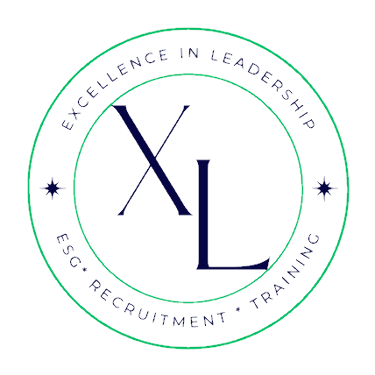Get Your Free ESG Revenue Audit
CSRD and Business Models - A study
In this post we follow on from our last discussion on the impending EU regulatory shadow that is CSRD and look at a study into Greek business models
L Joseph
8/19/20244 min read


With the Corporate Sustainability Reporting Directive (CSRD) fast approaching, businesses across Europe are coming to grips with how to enhance their sustainability reporting practices. The directive, which places a greater emphasis on transparency and long-term sustainability strategies, will significantly change the way companies report on their environmental and social impacts. A recent study examined how Greek listed companies are preparing for these changes, offering insights into their current sustainable business model (BM) reporting practices and highlighting areas where progress is needed.
Purpose of the Study
The study assessed the maturity of sustainability reporting practices among 30 companies across six sectors in Greece. The primary goal was to evaluate how well these companies report on their sustainable business models and strategies, particularly as they prepare to comply with the CSRD. Given the rising pressure on businesses to disclose both the positive and negative impacts of their sustainability efforts, this study provides a critical snapshot of how prepared companies are to meet these new requirements.
Methodology
The researchers conducted a content analysis of companies’ annual and sustainability reports. Using a maturity assessment framework built on eight criteria, they analysed how companies report on their business models and sustainability strategies. This evaluation highlighted the focus areas for businesses and offered a comparative look at reporting practices across various sectors.
Key Findings: Short-Term Focus Still Dominates
One of the study’s most striking revelations is the continued short-term focus of many companies. A full 80% of the companies analysed focused on the short-term potential of their business models. In contrast, only 33.3% addressed medium-term strategies, and a mere 26.7% considered the long-term outlook.
This short-term bias poses significant risks, as many of the sustainability challenges that companies face—such as climate change and resource scarcity—require long-term planning. By focusing primarily on immediate gains, businesses may leave themselves vulnerable to future risks, especially as regulatory requirements evolve.
Positive vs. Negative Impact Reporting: Imbalance in the Narrative
A critical aspect of sustainability reporting is transparency, particularly when it comes to disclosing both the positive and negative impacts of business operations. While 60% of companies reported on their positive sustainability impacts, only 36.7% acknowledged negative impacts. This imbalance suggests that many companies are showcasing their achievements without fully addressing the challenges or trade-offs inherent in their sustainability transitions.
This selective reporting can lead to credibility issues and may ultimately undermine the trust of investors, customers, and regulators. For companies to build long-term value through sustainability, they must provide a balanced view of both their successes and areas needing improvement. Transparency about negative impacts will become even more crucial as the CSRD introduces stricter reporting standards.
Sustainability Risks and Opportunities: Missing the Full Picture
The study revealed that while 50% of the companies discussed sustainability risks, only 36.7% highlighted the opportunities associated with sustainability. This suggests that many businesses are still in a defensive mode, focusing on the risks of non-compliance, rather than recognising the opportunities that sustainability presents.
Embracing sustainability offers numerous benefits beyond regulatory compliance, such as innovation, operational efficiency, and improved brand reputation. Companies that fail to recognise and communicate these opportunities risk falling behind as competitors leverage sustainability to drive growth and innovation. The CSRD provides an opportunity for companies to rethink their approach and integrate sustainability-driven opportunities into their core business models.
Sector-Specific Insights: Different Priorities Across Industries
The study also found sector-specific differences in how companies report on sustainability:
Construction: Companies here focus heavily on climate change management and carbon emissions reduction, reflecting the sector’s direct environmental impact.
Energy: Emphasis is on waste management and the circular economy, aligning with EU sustainability goals for reducing waste.
Banking: Prioritises anti-corruption measures and occupational health and safety, demonstrating a focus on governance and employee welfare.
Tourism and Transportation: Focused on customer health and employee development, reflecting the human-centric nature of these industries.
Information Technology: Prioritises employee development and occupational health, indicating a focus on human capital.
Cosmetics: The sector emphasises diversity and equality, showcasing a commitment to social sustainability.
These sector-specific approaches underscore the need for tailored sustainability strategies that address the unique challenges and opportunities of each industry.
Standardisation and Reporting Frameworks: A Need for Consistency
A key takeaway from the study was the varying adoption of global reporting standards such as the Global Reporting Initiative (GRI) and the Sustainability Accounting Standards Board (SASB). While many companies use yearly KPIs to measure their sustainability progress, the lack of standardisation across sectors makes it difficult for stakeholders to compare performance.
Standardised reporting frameworks not only enhance comparability but also build credibility. With the introduction of the CSRD, adopting consistent reporting standards will be crucial for companies to demonstrate their commitment to transparency and accountability.
Implications and the Road Ahead
The findings of this study highlight several areas for improvement as companies prepare for the CSRD:
1. Long-Term Focus: Companies need to broaden their reporting to include medium- and long-term sustainability strategies. Focusing only on short-term outcomes may expose them to future risks.
2. Balanced Reporting: There is a clear need for more comprehensive and balanced disclosure of both positive and negative impacts. Transparent reporting builds trust and credibility with stakeholders.
3. Opportunity Focus: While managing sustainability risks is critical, companies should also focus on the opportunities that arise from embracing sustainability, such as innovation and competitive advantage.
4. Sector-Specific Strategies: Each industry faces unique sustainability challenges, and businesses should develop sector-specific strategies that align with their operational realities.
5. Standardisation: Adopting global reporting frameworks like GRI and SASB will improve comparability and help businesses meet regulatory requirements under the CSRD.
Conclusion: Progress, But Room for Growth
The study of Greek listed companies offers valuable insights into the current state of sustainable business model reporting. While progress has been made, there is significant room for improvement, particularly in terms of adopting a long-term view, providing balanced reporting, and embracing standardisation.
For companies preparing for the CSRD, now is the time to rethink sustainability strategies and reporting practices. A more mature and comprehensive approach to sustainability reporting will not only ensure regulatory compliance but also create long-term value for shareholders, employees, and society as a whole.
[Read the full study here](https://www.mdpi.com/1911-8074/16/10/445).
Assessing the Maturity of Sustainable Business Model Reporting Under the CSRD Shadow
Contacts
info@xlhorizon.com
+44 (0)203 879 0925
20-22 Wenlock Rd
London N1 7GU
